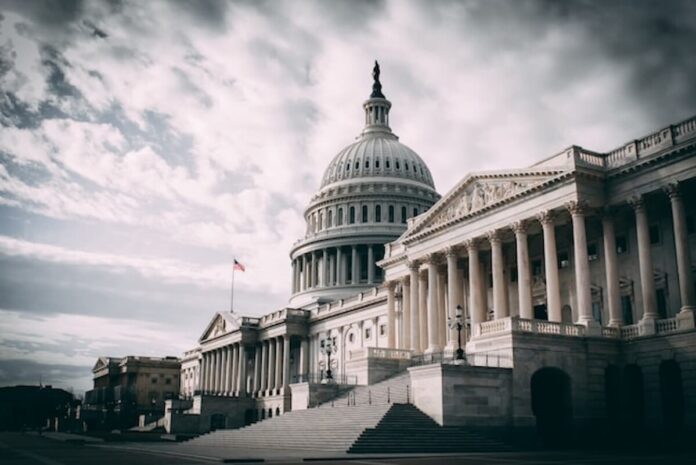
Brian D. Quintenz, Donald Trump’s nominee for Chairman of the US Commodity Futures Trading Commission (CFTC), has suggested that he will allow the expansion of prediction markets, including sports event contracts.
During the US Senate Committee on Agriculture, Nutrition, and Forestry hearing, Quintenz stated that, under the Commodity Exchange Act (CEA), events on nearly all markets are permitted. He also indicated that native American tribes could, in theory, offer event contracts.
Sports Prediction Markets and the Commodity Exchange Act
One topic on many people’s minds was Quintenz’s stance on sports event contracts. These types of contracts have grown in popularity on platforms like Kalshi. Many lawmakers and state regulators view them as an unregulated form of gambling.
Sen. Adam Schiff (D-California) expressed concerns about these types of contracts:
“Well, in my view, betting on the outcome of a sporting event looks like sports betting, looks like gaming, smells like gaming, sounds like gaming, there are winners and losers like gaming, it’s probably gaming.”
Quintenz responded by emphasizing that CEA governs such markets:
“I believe that I need to abide by the Commodity Exchange Act…I believe the Commodity Exchange Act is very clear about the purpose of derivatives markets, the purpose of risk management and price discovery, and that events can serve a function in that mandate. I believe the Commodity Exchange Act is very clear about the purpose of derivatives markets, the purpose of risk management and price discovery, and that events can serve a function in that mandate.”
He added that if a conflict arises between the CFTC’s interpretation and state gambling laws, stating: “I believe that’s best resolved through Congress.”
When asked whether states should be able to block CFTC-approved products, the nominee reaffirmed that the commission’s role is to oversee event contracts.
Quintenz did not explicitly state that sports event contracts are commodities under the CEA. Still, he suggests that he views event-based derivatives, including those tied to sports, under the CFTC’s authority.
Tribes Could Participate in Sports Prediction Markets
Sen. Schiff raised a question about sports prediction markets possibly challenging tribal sovereignty:
“I’m proud to represent more than a hundred federally recognized tribal nations in California that have the exclusive right to offer gaming in California and I am very concerned that these event contracts, which seemed pretty indistinguishable, at least from the consumer point of view, from gaming, violate tribal sovereignty, undermine state and tribal gaming compacts, and conflict with the Indian Gaming Regulation (sic) Act.”
Schiff added that, under Federal law, Native tribes have the authority to police gambling within their territories. He questioned whether Quintenz would consider that when reviewing sports event contracts.
The CFTC Chair nominee acknowledged the Senator’s concerns and said he would engage with tribal stakeholders: “Nothing in the CEA that I’m aware of prohibits or affects the opportunity of tribes to offer those products and those markets and those services.”
The nominee stopped short of directly approving tribal-ran sports event contracts. However, his comments point in that direction.
While in Schiff’s home state of California, many tribes oppose sports betting, those in other states have pursued the idea.
In Alabama, the Poarch Band of Creek Indians has advocated for the expansion of gambling, including sports betting.
In Oklahoma, the Native American tribes have been attempting to renegotiate the gaming compacts to include sports betting. However, their tense relationship with Gov. Kevin Stitt has been an issue. Earlier this year, two bills were introduced to give the tribes exclusivity over sports betting. They passed the House but ran out of time in the Senate.
Meanwhile, in Florida, the Seminole Tribe holds a monopoly over sports betting after prevailing in legal battles. However, sports prediction events could open a way for other tribes in the state to offer “sports betting.”
Conflict of Interest Questions over Kalshi
Quintenz currently sits on the board of Kalshi, a position he has stated he will resign from if confirmed as Chair of the CFTC. In his ethics agreement, he pledged to recuse himself from matters related to the company for one year.
However, Sen. Cory Booker (D-NJ) expressed concerns about Quintenz’s relationship with Kalshi and the company’s addition of Donald Trump Jr. The president’s son was hired as a strategic advisor just a week before his father was sworn into office and days before Kalshi started offering sports event contracts:
He commented: “And so I’m worried that you’re going to be in a position where, if chairman, are you going to feel empowered to prosecute a company or push back on a company that’s being advised by the president’s son?”
Booker framed the issue within broader concerns about corruption and transparency. He also mentioned President Trump’s association with financial ventures, including a meme coin.
As the hearing’s time expired, Quintenz gave a short response: “I would pledge to have that conversation with you and to have that relationship.”
Kalshi’s Ongoing Legal Battles Could Shift the Landscape
While the CFTC chair confirmation is ongoing, Kalshi is fighting legal battles on many fronts. Several state gambling regulators have ordered the platform to stop offering sports contracts, to which Kalshi has filed lawsuits.
Sen. Booker’s state of New Jersey is among those, but in April, a federal court backed Kalshi and blocked the New Jersey Division of Gaming Enforcement from enforcing its cease-and-desist order. Recently, Nevada regulators suffered a similar fate.
However, the ongoing case in Maryland could provide clarity on sports event contracts. The federal judge scrutinized Kalshi for presenting conflicting positions in court compared to a previous case against the CFTC.
In that case, Kalshi claimed that sports event contracts have no economic value and are therefore not subject to CFTC regulations. However, in the Maryland case, it says the opposite.
This change of positions could result in the court applying judicial estoppel. Judicial estoppel is a legal principle that prevents a party from contradicting earlier statements in court, ensuring fairness and consistency.
If the judge rules against Kalshi, it could represent a breakthrough for state regulators. It could also reshape the regulation of sports event contracts nationwide.












